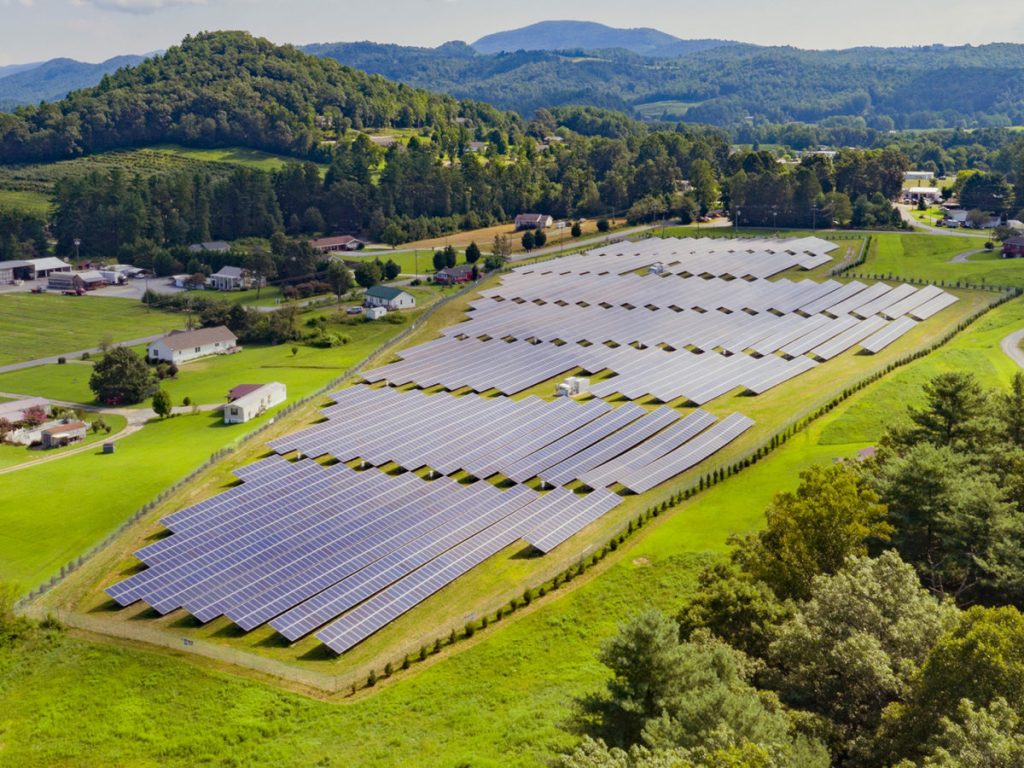North Carolina utilities approve 551 MW of solar power at 3.8¢/kWh
Duke Energy has completed a solicitation for 551 MWac of solar power through its CPRE program, with average pricing between 3.79¢/kWh and 3.83¢/kWh and 20 year power contracts.

Duke Energy Carolinas (DEC) and Duke Energy Progress (DEP) – have completed a request for proposals (RFP), via the state’s Competitive Procurement of Renewable Energy (CPRE) program (pdf), that has approved bids of 551 MWac of solar power. DEC approved 465 MWac while DEP approved 86 MWac.
The fourteen winning projects, ranging from 7 MWac to the 80 MW maximum size, submitted bids that averaged 3.794¢/kWh and 3.83¢/kWh (below image) for the electricity in 20 year power purchase agreements (PPA). Two of the projects had energy storage.

One project has withdrawn from the RFP after being approved, but was removed from these values. If that project had been included, the DEC region would have had 515 MWac.
The CPRE program has a goal of soliciting 2.6 GWac of solar power in the 45 months following January 18, 2018, when the program was instituted.
Eighteen developers submitted 78 proposals (below image) in total between the two utility areas, with ten of the eighteen developers submitting more than one proposal. The total capacity submitted was 2,732.72 MWac in total – more than four times the solicited volume.
Four proposals submitted included energy storage, with three of them connecting to the distribution system and one to the transmission system.

The report noted that PPA proposals fees ranged from $500 to $10,000, and that Interconnection Application and Proposal fees totaled $922,710.
The CPRE program requires that new projects be priced below administratively-established avoided costs. The RFP provided avoided cost rates for three pricing periods (below image): summer, non-summer, and off peak, to which all proposals must have bid at or below.

The program scored the projects on a variety of items (below image), with the price of the electricity being 60% of the overall scoring.

One developer noted that Duke Energy themselves submitted, and won, an 80 MWac project – but that their proposal was submitted outside of the rule process that all other developers had to consider when submitting. The final RFP by Accion notes, “The RFP expressly waived the proposal security requirement for utility self-developed proposals.”
The specific rules were noted in the original RFP requirements (pdf) were that all participants were required to submit proposal security along with tier projects. The above quote noted in the final RFP by Accion wasn’t found in the linked to RFP above.
Since many of these RFPs are put forward with projects due within a few months, it is not possible to get a project ready for a deal like this within the alloted time. With this, only developers that already have projects pretty far along the time line will have a real chance.
The developer further provided further insights to pv magazine USA:
Duke could have bid a site on which limited site control and interconnection request was only established one week prior to the Tranche 1 bid deadline, and on which it had made zero progress in zoning and permitting as of the performance security posting deadline – because Duke knew it would have 6-7 months longer than other bidders to further develop, de-risk, and diligence the site to determine whether or not it was actually financeable.

